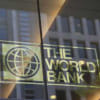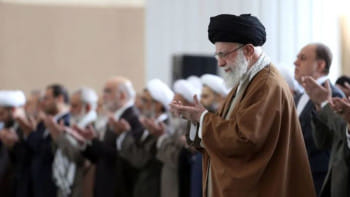UK to lend $450m in five years

British International Investment (BII) has embarked on an ambitious plan of lending $450 million to Bangladesh over the next five years, finding that the country has a stable government and policy support for private sector development.
Private sector financing in the areas of renewable energy and green factories will be the focus of the fund, said top officials of the BII, the development finance institution of the UK government.
The plan was made public during BII Chief Executive Officer Nick O'Donohoe's visit to Bangladesh last week.
"We focus on the countries that have a strategic alliance with the UK, with ongoing development challenges, and ideally, having a stable government and stable economic policies that create jobs," said O'Donohoe.
"All of these are present in Bangladesh," he said in an interview with The Daily Star at the British high commission in Dhaka.
Currently, the BII has a portfolio of about $300 million in Bangladesh, supporting 11 businesses and two funds, across a variety of sectors, including financial services, infrastructure, manufacturing and food processing.
Following a visit to Dhaka in 2019 by the officials of the then Commonwealth Development Corporation, which is the former name of the BII, it has already established its Bangladesh office in Dhaka.
This shows the increasing interest of the development financial institution in Bangladesh where the private sector is rapidly expanding.
O'Donohoe said the BII keeps green financing a top priority in line with the UK's commitment to climate finance.
Given the lack of adequate wind and land, the country does not have much scope on investing in wind or solar power. Therefore, it will look to invest in green factories and projects, he said.
"Another important area is commercial industrial application. Individual industries or hospitals can set up solar power systems. Bangladesh is one of the target countries for this."
He thinks Bangladesh can attract more foreign direct investments by better focusing on its digital transformation.
Unlike some of the African countries and also countries like Pakistan and Nepal, Bangladesh is already active in digital transformation and the BII could find more opportunities in the sector.
On the potential of Bangladesh in terms of foreign investments, BII Country Director M Rehan Rashid said there were positive moves from the government side.
The investment process needs simplification of procedures. The government has already established a one-stop centre, he said.
In the past, development finance institutions had been coming here but now commercial banks from the countries such as Malaysia and Singapore are also coming.
"That means the market is opening up here. In fact, we would also encourage other foreign investors to come to this market," said Rashid.
On the challenges the country faces in terms of foreign investment, he said foreign investors look at the level of governance and environmental standards and check if local companies have access to low-cost funds.
He said there were 160 green factories that were mostly from the RMG and pharmaceuticals sectors.
"They have done it because they have incentives as they are export-oriented factories and face buyers' pressure."
"If factories in other sectors go green, they will get low-cost financing. Investors are looking for good companies. As soon as you can have these things in place, you will have more foreign investments," Rashid added.
Apart from garments and pharmaceuticals, Bangladesh also has sectors with potential like jute and IT, which can be multi-billion-dollar sectors. Then, there is the blue economy that has immense potential but is yet to be tapped.
"Bangladesh has adequate power supply. Now, hopefully, we will see a lot of new factories in the economic zones," Rashid added.

 For all latest news, follow The Daily Star's Google News channel.
For all latest news, follow The Daily Star's Google News channel. 








Comments